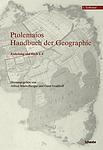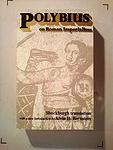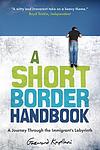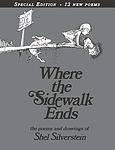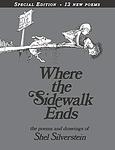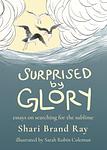The Greatest Roman, Greek "Nonfiction" Books of All Time
Click to learn how this list is calculated.
This list represents a comprehensive and trusted collection of the greatest books. Developed through a specialized algorithm, it brings together 305 'best of' book lists to form a definitive guide to the world's most acclaimed books. For those interested in how these books are chosen, additional details can be found on the rankings page.
Genres
Countries
Date Range
Reading Statistics
Click the button below to see how many of these books you've read!
Download
If you're interested in downloading this list as a CSV file for use in a spreadsheet application, you can easily do so by clicking the button below. Please note that to ensure a manageable file size and faster download, the CSV will include details for only the first 500 books.
Download-
26. Germania by Cornelius Tacitus
"Germania" is a historical and ethnographic work that provides a detailed description of the lands, customs, and tribes of the Germanic people in the first century AD. The author, a Roman historian and senator, offers a comprehensive account of the geography, anthropology, social institutions, and military practices of the Germanic tribes, often comparing their culture and values to those of the Romans. The work is considered a valuable source of information about the ancient Germanic tribes, despite its possible biases and inaccuracies.
The 2333rd Greatest Book of All Time -
27. Titi Livi Ab urbe condita libri by Livy
This historical work offers a comprehensive narrative of the history of Rome, from its mythical origins to the reign of the Roman Emperor Augustus. The author chronicles the major political, military, and social events of the Roman Republic, including the founding of the city, the establishment of the Republic, the Punic Wars, and the rise of Julius Caesar. The book is a significant source of information about the early history of Rome and is often considered one of the most important works of Roman history.
The 2400th Greatest Book of All Time -
28. Phaedrus by Plato
Phaedrus is a Socratic dialogue that discusses topics such as love, the nature of the soul, and the art of rhetoric. The narrative begins with a myth about the chariot of the soul, then moves on to a discussion about the nature of love, particularly focusing on the concept of divine madness. The dialogue then transitions into a discussion about rhetoric and writing, debating the merits and pitfalls of both. The dialogue concludes with a critique of the art of rhetoric, arguing that true rhetoric must be based on truth and knowledge rather than manipulation and deceit.
The 2760th Greatest Book of All Time -
29. Metaphysics by Aristotle
"Metaphysics" is a philosophical work that delves into the fundamental nature of reality, including the relationship between matter and substance, potentiality and actuality, form and matter, existence and essence, and the underlying principles of being. It also explores the concept of 'first philosophy' or 'wisdom', and the existence of God as an unmoved mover. The book is a profound exploration of ontology, causality, and the abstract concepts of being and knowing.
The 2803rd Greatest Book of All Time -
30. Poetry by Quintus Lutatius Catulus
This book is a collection of ancient Roman poetry by a renowned statesman and poet. The poems reflect the author's experiences, thoughts, and feelings about life, love, politics, and society during the Roman Republic era. The author's eloquent and vivid writing style, combined with his astute observations and insights, make this book a valuable resource for understanding Roman culture and history.
The 2844th Greatest Book of All Time -
31. Geography by Ptolemy
"Geography" is a seminal work in the field of geography and cartography, written by a renowned ancient Greek scholar. The book provides comprehensive details about the world as known during the Roman Empire. It contains a wealth of information about various countries, cities, landmarks, and geographical features, along with instructions on how to create maps. The author also introduces the concept of longitude and latitude, making this work a significant contribution to the field of geography.
The 2942nd Greatest Book of All Time -
32. Catiline Orations by Marcus Tullius Cicero
"Catiline Orations" is a series of speeches given by a renowned Roman statesman, which were aimed at exposing and condemning the conspiracy led by Lucius Sergius Catilina. The speeches, delivered in the Roman Senate, are a masterful display of oratory skills and political acumen, as the statesman successfully manages to turn the Senate against Catiline, ultimately leading to his downfall. The book offers an in-depth study of these speeches, providing valuable insights into Roman politics, rhetoric, and the art of persuasion.
The 3093rd Greatest Book of All Time -
33. Natural History by Pliny (the Elder)
"Natural History" is an extensive work of literature that provides a comprehensive look at the knowledge of the natural world during the Roman era. The book is divided into 37 volumes, each focusing on different aspects such as geography, anthropology, zoology, botany, and mineralogy. The author's curiosity and fascination with the world are evident in his detailed observations and descriptions. The book also includes discussions on art, sculpture, and various other topics, providing a rich and detailed snapshot of the Roman understanding of the world.
The 3202nd Greatest Book of All Time -
34. The Consolation of Philosophy by Boethius
"The Consolation of Philosophy" is a philosophical work written in the 6th century, where the author, imprisoned and awaiting execution, engages in a series of dialogues with Lady Philosophy about the nature of life and human happiness. The author grapples with the harsh realities of his own life, including his fall from favor, his unjust imprisonment, and impending execution. Through these dialogues, the author learns to understand life from a philosophical and spiritual perspective, finding consolation and peace amidst his dire circumstances. The work is a profound meditation on fate, free will, time, and eternity.
The 3462nd Greatest Book of All Time -
35. Anabasis by Xenophon
"Anabasis" is a historical narrative detailing the journey of 10,000 Greek mercenaries who are hired by Cyrus the Younger to help him seize the Persian throne from his brother, Artaxerxes II. After Cyrus's death in battle, the Greeks are stranded deep in enemy territory with no supplies or means of escape. The narrative follows their perilous journey home through hostile lands, under the leadership of one of their own, a young soldier who emerges as a capable and inspiring leader.
The 3462nd Greatest Book of All Time -
36. On The Ends Of Good And Evil by Marcus Tullius Cicero
"On the Ends of Good and Evil" is a philosophical work that explores the ethical theories of Hellenistic schools, including Stoicism, Epicureanism, and the Peripatetic tradition. Through a series of dialogues, the text delves into the nature of happiness and the ultimate end of human action, examining what constitutes the highest good. The author critiques and compares the doctrines of these schools, ultimately defending the Stoic view that virtue is the sole basis of happiness and the ultimate goal in life, while also acknowledging valuable insights from other philosophical traditions.
The 4688th Greatest Book of All Time -
37. Euclid's Elements by Euclid
This book is a comprehensive collection of definitions, postulates, propositions, and mathematical proofs written by an ancient Greek mathematician. It is considered one of the most influential works in the history of mathematics, serving as the main textbook for teaching mathematics, especially geometry, from the time of its publication until the late 19th or early 20th century. The book covers topics such as plane geometry, proportion in general, the properties of numbers, incommensurable magnitudes, and solid geometry.
The 5086th Greatest Book of All Time -
38. Gardens Of Adonis by Marcel Detienne
"Gardens of Adonis" delves into the intricate world of ancient Greek mythology and rituals, focusing on the figure of Adonis. The book explores the symbolic and practical roles of spices and herbs in Greek culture, particularly in relation to the Adonis cult. Through an analysis of the ephemeral gardens dedicated to Adonis, the work examines themes of fertility, death, and rebirth, revealing how these gardens, despite their fleeting nature, held profound meanings for ancient Greek society. The study highlights the interplay between myth and ritual, offering insights into the agricultural and religious practices of the time.
The 5517th Greatest Book of All Time -
39. The Works of Archimedes by Archimedes
This book is a compilation of the surviving works of one of the greatest mathematicians and inventors of all time. It includes his theories and discoveries in fields such as geometry, calculus, physics, and engineering. Readers will find his famous treatises on the lever, the sphere and the cylinder, floating bodies, and the measurement of a circle, among others. The book also contains his explanations of the principles of mechanics, the concept of equilibrium, and the center of gravity of plane figures.
The 6513th Greatest Book of All Time -
40. Catiline's War, The Jugurthine War, Histories by Sallust
This book is a combination of three works by a Roman historian and politician, focusing on the political and military events of the late Roman Republic. It first covers the conspiracy led by Catiline in 63 BC, then shifts to the war against Jugurtha in North Africa, and finally provides a fragmentary history of Rome from 78-67 BC. The author uses these events to critique the moral decay of Rome, highlighting the corruption, greed, and ambition that he believed led to the fall of the Republic.
The 6513th Greatest Book of All Time -
41. The Histories by Polybius
"The Histories" is a comprehensive account of the rise of the Roman Empire, focusing on the period from 264-146 BC. The author, a Greek statesman, provides a detailed analysis of the political, military, and social structures of Rome, attributing its success to a balanced constitution and superior military organization. The work also includes first-hand accounts of several significant events, such as the Third Punic War and the Numantine War.
The 6513th Greatest Book of All Time -
42. The Politics by Aristotle
"The Politics" is a foundational text in political philosophy, where the author explores various forms of government and their respective merits and drawbacks. The work delves into the nature of the state, citizenship, and the role of the middle class in achieving political stability. It emphasizes the importance of a constitution that balances the interests of different parts of society and discusses the conditions under which various types of governments can be successful. The author also examines the relationship between politics and ethics, asserting that the main purpose of the state is to promote a good and virtuous life among its citizens.
The 6745th Greatest Book of All Time -
43. Selected Speeches by Demosthenes, Robin Waterfield
"Selected Speeches" is a compilation of orations by one of ancient Greece's most renowned orators, Demosthenes. The collection, translated and edited by Robin Waterfield, showcases Demosthenes' eloquence and his passionate involvement in the political life of Athens. Through these speeches, readers gain insight into the complex social and political issues of the time, including the struggle against Macedonian influence under Philip II. The speeches not only highlight Demosthenes' rhetorical prowess but also reflect the dynamics of power and resistance in classical Athens, offering a window into the art of persuasion and the civic identity of the Athenians.
The 6745th Greatest Book of All Time -
44. A Short Border Handbook by Gazmend Kapllani
"A Short Border Handbook" is a poignant and thought-provoking memoir that follows the journey of a young Albanian man who leaves his homeland to seek a better life in Greece. Through a series of vivid and often humorous anecdotes, the author explores themes of identity, belonging, and the complexities of borders, both physical and metaphorical. With a mix of personal experiences and historical context, this book offers a unique perspective on the challenges and triumphs of immigration, ultimately revealing the universal human desire for freedom and acceptance.
The 6847th Greatest Book of All Time -
45. Poems by Alkman
The book is a collection of ancient Greek lyric poetry attributed to a celebrated poet of the Archaic period. It encompasses a range of choral compositions that were originally intended for musical accompaniment, reflecting the cultural and social milieu of Sparta during the 7th century BCE. The verses are characterized by their vivid imagery, rhythmic innovation, and the use of a local dialect, which together convey themes of nature, mythology, and everyday life. Although only fragments of the original works survive, they offer a glimpse into the ceremonial performances and the poetic artistry of the time, showcasing the poet's skill in blending personal expression with communal celebration.
The 7168th Greatest Book of All Time -
46. Poems by Archilochos
The book is a collection of lyrical poetry from an ancient Greek poet renowned for his versatile and innovative use of poetic meters. The poems reflect the poet's personal experiences, emotions, and observations, often with a sharp wit and a frank, sometimes acerbic, tone. His work covers a range of themes, from war and politics to love and loss, offering a glimpse into the life and times of the early Greek lyrical tradition. The poet's influence is notable for his pioneering role in the development of the personal voice in poetry, breaking away from the Homeric tradition of epic storytelling to explore individual human experiences.
The 7168th Greatest Book of All Time -
47. Works by Empedocles
The book in question is a compilation of philosophical and poetic writings attributed to an ancient pre-Socratic philosopher. It delves into the author's theories on the nature of the universe, which are centered around four eternal elements—earth, air, fire, and water—and two opposing forces, Love and Strife, which are responsible for the combination and separation of these elements. The work also touches upon themes such as the transmigration of souls, the unity of being, and the importance of striving for harmony with the cosmos. Through a blend of poetic allegory and speculative thought, the text seeks to explain the complexity of the world and the principles governing its changes and transformations.
The 7168th Greatest Book of All Time -
48. On The Sublime by Longinus
The treatise in question is a seminal work of literary criticism from antiquity that explores the concept of the sublime, a quality of greatness or grandeur that can elevate written works to the highest levels of distinction. The author examines the sources of sublimity, attributing it to a combination of the natural abilities of the writer and their emotional investment, while also considering the effects of rhetorical devices, figures of speech, and noble diction. The work further discusses the importance of avoiding pitfalls that can detract from the sublime and includes analysis of various texts to illustrate its points. The author's insights aim to guide writers and critics in creating and recognizing profound and moving literature that can stand the test of time.
The 7168th Greatest Book of All Time -
49. Moralia by Plutarch
"Moralia" is a collection of essays and dialogues that delve into various ethical, religious, physical, political, and literary topics, reflecting the author's profound interest in the moral issues of his time. The work is not a single coherent piece but rather an eclectic compilation of thoughts and inquiries, ranging from the proper behavior at a banquet to discussions on the nature of virtue and the influence of superstition. Through these texts, the author explores the conduct of daily life and the philosophical underpinnings of human actions, often drawing on historical examples and the wisdom of Greek and Roman thinkers to illustrate his points. The collection serves as a rich source of insight into the intellectual climate of the early Imperial period and the enduring questions of human morality.
The 7168th Greatest Book of All Time -
50. On The Gods by Marcus Tullius Cicero
The book is a philosophical treatise that explores ancient theological concepts and the nature of the gods, presenting a critical examination of various religious beliefs and practices of the time. The author, a Roman statesman and scholar, engages in a series of dialogues that delve into the existence and attributes of the divine, contrasting the Epicurean view of detached gods with the Stoic belief in a providential order. Through rigorous argumentation and eloquent rhetoric, the work seeks to understand the role of the gods in human life and the universe, while also reflecting on the implications of piety, fate, and the pursuit of happiness within the context of Roman religion and philosophy.
The 7168th Greatest Book of All Time
Reading Statistics
Click the button below to see how many of these books you've read!
Download
If you're interested in downloading this list as a CSV file for use in a spreadsheet application, you can easily do so by clicking the button below. Please note that to ensure a manageable file size and faster download, the CSV will include details for only the first 500 books.
Download




